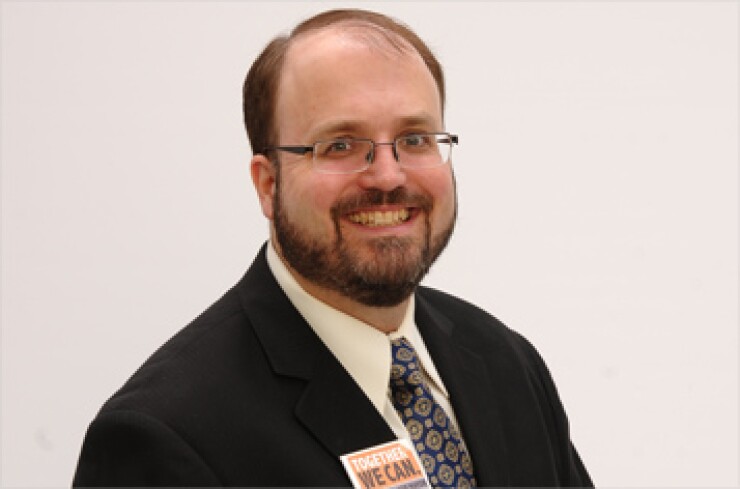
Harrisburg, Pa., faces a revenue gap next year of $6 million less than what state receivers projected in the city's 2013 recovery plan. Mayor Eric Papenfuse said Tuesday.
Estimates were essentially too optimistic for both the earned income tax and new parking revenues, according to the mayor.
"Yes, hundreds of millions of dollars in long-term debt was triumphantly wiped from the city's books. But unfortunately, years of irregular city accounting masked a long-standing structural deficit that was years in the making, and far more insidious than the receiver's team realized," Papenfuse said in his state of the city address at the Harrisburg Hilton.
The $6 million represents 10% of Harrisburg's adjusted budget for 2015.
Papenfuse, who took office in January 2014, called for tripling the local services tax from $1 per week to $3, which he said would bring in $4 million annually.
Recent changes in Pennsylvania's law governing the Act 47 workout program for distressed municipalities, which the state Department of Community and Economic Development oversees, enable cities to request the court for an increase in that tax.
Papenfuse also wants to expand sanitation operations, the one revenue source for which the city is out-performing expectations.
"The sanitation fund, if carefully managed, can even serve as a low-interest means of lending to the general fund, which will help the city become ever more self-sufficient in the future," he said.
In addition, Papenfuse will push for home rule. Next year, he said, he will introduce an ordinance in the City Council calling for a ballot question of establishing a government study commission.
"We need to transfer basic authority back from the state to the municipality. It will take time but the discussion must start now - because, ultimately, home rule is Harrisburg's only real way out of Act 47," he said.
In September 2013, the Commonwealth Court of Pennsylvania approved the so-called Harrisburg Strong plan, crafted by an advisory team led by retired Air Force General William Lynch. It erased about $600 million of debt - largely tied to an incinerator retrofit bond financing fiasco that began as a $25 million borrowing -- and spared the 49,000-population city from bankruptcy.
Then plan hinged on the sale of the city incinerator to the Lancaster County Solid Waste Management Authority, long-term lease of parking assets and concessions from major creditors, including Assured Guaranty Municipal Corp. and Dauphin County. It also called for four years of balanced budgets.
Papenfuse in January signed off on a restructuring agreement for a separate debt, related to the 12-story downtown building known as the Verizon Tower.
While he reiterated his opposition to the deal, Papenfuse said the consequences of not signing it would be worse for the city. The mayor called for an investigation into the 1998 bond transaction that straddled the capital city with nearly $42 million of debt service on a $6.9 million borrowing.
Pennsylvania last month issued a request for proposals to hire a law firm to claw back money from incinerator financing participants. In July, state Attorney General Kathleen Kane's office indicted Stephen Reed, Harrisburg's mayor from 1982 to 2009, announcing 17 counts and 499 charges against Reed related to his financial dealings while in office.
A Montgomery County grand jury in August indicted Kane herself for leaking grand jury information to a newspaper and lying about it under oath.





